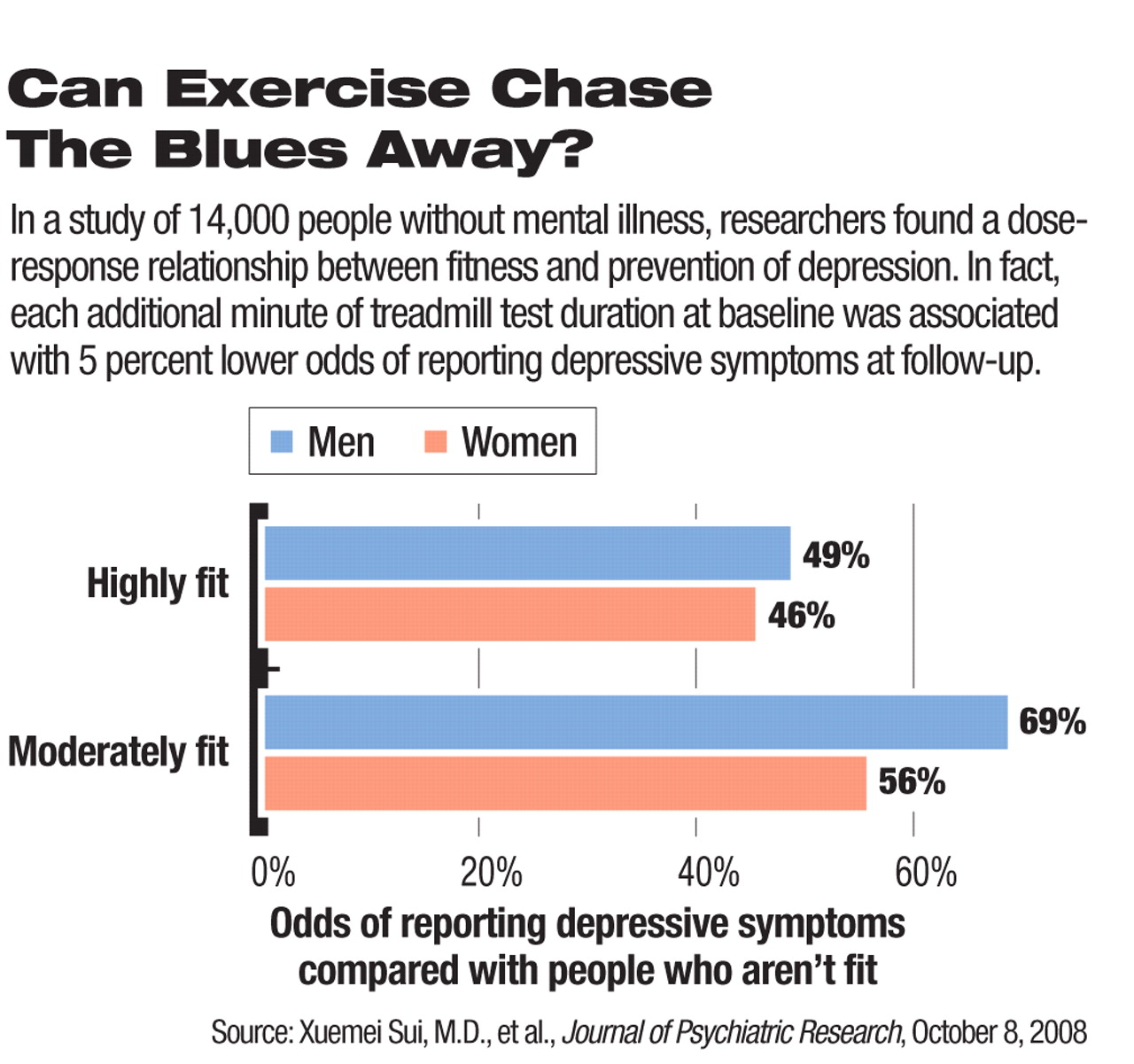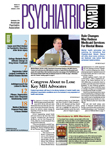So you want to ward off the blues? Exercise!
Sure, some critics will argue, most of the evidence linking exercise with depression prevention comes from cross-sectional studies, so that it's possible that exercise does not prevent depression, but rather that upbeat people are more likely to exercise in the first place. But now a new study, with a large number of subjects and a prospective design, has also linked exercise with less depression.
The study was posted October 8, 2008, in the Journal of Psychiatric Research.
Its results bolster the argument that exercise can prevent depression, Xuemei Sui, M.D., a research associate at the University of South Carolina and the lead investigator, believes. “Improving one's fitness can not only lower many disease risks such as cardiovascular disease and certain types of cancer,... but also benefit one's mental well-being,” she asserted.
Ronald Kamm, M.D., a sport psychiatrist in Oakhurst, N.J., and a past president of the International Society for Sport Psychiatry, concurs with Sui.“ This is a good study,” he said. “It adds to the literature showing a preventive effect of exercise regarding depression.”
The study, which started in 1970, involved more than 14,000 men and women enrolled in the Aerobics Center Longitudinal Study in Dallas. None of the subjects had a history of mental illness, cardiovascular disease, or cancer. Their cardiorespiratory fitness was measured at the start of the study with a maximum treadmill exercise test. They were evaluated for depression one or two times during the follow-up period, which ranged from one to 15 years, with the average being 12 years. At the end of that time, 1,022 subjects reported having had depressive symptoms at the time of either or both assessments.
The researchers found that subjects who had been more fit at the start of the study were significantly less likely to experience depression during the follow-up period than were subjects who had been less fit at that time. Further, the results held even when a number of possibly confounding factors—baseline physical examination year, depression survey year, smoking status, alcohol consumption, body mass index, high blood pressure, and diabetes—were considered. And perhaps most strikingly, there appeared to be a dose-response relationship between fitness and the prevention of depression.
“I'm also glad that the researchers talked about the obesity-depression link [in their report], as psychiatrists need to be aware of that,” Kamm said.
Indeed, Sui and her colleagues found that obese subjects had a significantly higher risk of depressive symptoms than nonobese subjects, and in a previous study, that overweight or obese postmenopausal women could improve their physical fitness with as little as 72 minutes of moderately intense physical exercise a week.
An abstract of “Prospective Study of Cardiorespiratory Fitness and Depressive Symptoms in Women and Men” can be accessed at<www.sciencedirect.com> by clicking on “J” under “Browse by Title,” then“ Journal of Psychiatric Research,” then “Articles in Press.” ▪

